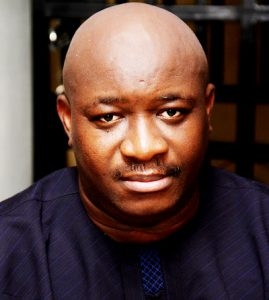Edetaen Ojo, Executive Director, Media Rights Agenda has disclosed that the real intention of the Nigerian government with the social media bill is to stifle dissent and critical voices.
This is just as he explained that there is nothing fundamentally wrong with the regulation of social media, but raised concerns about the intention of the Nigerian government with the bill.
Edetaen Ojo in an exclusive interview with BONews Service disclosed that “it will be extremely difficult, if not impossible, to find any legal basis for the argument that there should be no regulation whatsoever of social media.”
“The content and details of various Bill initiated by the Nigerian government over time make it quite clear that their real intention is to stifle dissent and critical voices.
“In virtually all of these instances, they would take a legitimate issue, such hate speech, misinformation, disinformation, etc., and pretend that they are responding to the issue through the Bill and only end up perverting the issue and the legitimacy of the legislative process.
“As the number of Internet users in Nigeria has grown over the years, we have seen a new class of citizens emerge, a class of citizens who are increasingly interested in public policy and governance issues and have become quite engaged and vocal in the political arena. They engage online, relying very heavily on social media platforms.
“This is causing anxieties for our leaders with the result that they are constantly looking for ways to regulate social media to deny citizens these platforms and thereby suppress an increasingly engaged citizenry,” he added.
While it might be impossible to campaign against social media regulation, Mr. Ojo noted that, “what I believe is feasible and realistic is ensuring that any intention to regulate social media is legitimate and that the actual regulation is not so restrictive as to violate the right to freedom of expression.
MRA’s Executive Director thereafter explained that international human rights law allows restrictions on the right to freedom of expression, including online, but there are clear limits to regulation or any restriction that states can impose.
“The right to freedom of expression, which is the bedrock of the protection for social media under our Constitution, is not an absolute right. Section 45(1) (a) and (b) of the 1999 Constitution, as amended, affirms the validity and legitimacy of any law that restricts the right to freedom of expression, as well as some other rights in the interest of defence, public safety, public order, public morality or public health as well as for the purpose of protecting the rights and freedoms of other persons.
“Similarly, the right to freedom of expression is also not absolute under international human rights law. For instance, the International Covenant on Civil and Political Rights (ICCPR) provides in Article 19(2) that: “Everyone shall have the right to freedom of expression; this right shall include freedom to seek, receive and impart information and ideas of all kinds, regardless of frontiers, either orally, in writing or in print, in the form of art, or through any other media of his choice.”
“But it goes on to say that the exercise of the rights provided for in the instrument carries with it special duties and responsibilities and that it may therefore be subject to certain restrictions, but these shall only be such as are provided by law and are necessary for respect of the rights or reputations of others; for the protection of national security public order or of public health or morals.
“Nigeria is a State Party to the ICCPR, having acceded to it on 29 July 1993. Under the Covenant International criminal law and some other international human rights laws, States are specifically required to prohibit through criminal law certain types of expression, including child pornography online; direct and public incitement to commit genocide; any advocacy of national, racial or religious hatred that constitutes incitement to discrimination, hostility or violence, also known as “hate speech”; and incitement to commit a terrorist act or acts.
“I believe that in Nigeria as well as in many other countries, it is not inconceivable that some people will likely use social media for purposes which violate these norms and standards of that some people will use social media in a manner that violates the rights of others, such as breaching their privacy and defaming them.
“So based on the provisions that I have referred to, international human rights law not only allows some restrictions on the right to freedom of expression, including online, but it actually mandates States to take steps to restrict and regulate certain forms of expression. However, there are clear limits to regulation or any restriction that states can impose.
“The UN Human Rights Committee outlined the limits quite clearly when it stated that any “restrictions on the operation of websites, blogs or any other Internet-based, electronic or other such information dissemination system, including systems to support such communication, such as Internet service providers or search engines”, are only permissible to the extent that they are compatible with Article 19(3) of the ICCPR.
“It also stated that permissible restrictions generally should be content-specific and that generic bans on the operation of certain websites and systems are not compatible with this provision,” Mr. Ojo added.


Comments 1